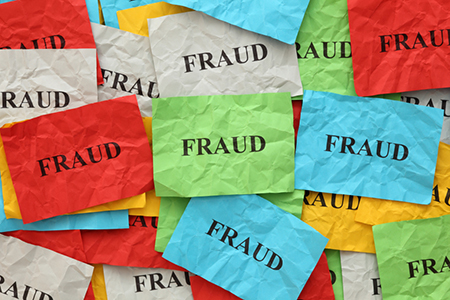 Predatory lending has declined sharply in the years since Dodd-Frank, but it, and other types of mortgage fraud, still steep into housing even today and affect every stage of the homeownership cycle.
Predatory lending has declined sharply in the years since Dodd-Frank, but it, and other types of mortgage fraud, still steep into housing even today and affect every stage of the homeownership cycle.
Mortgage fraud, an umbrella term, is “a crime characterized by some type of material misstatement, misrepresentation, or omission on a loan which is then relied upon by a lender,” according to the FBI. It generally falls into one of two categories: fraud for profit and fraud for housing. Fraud for profit crimes are typically committed by those within the industry; fraud for housing crimes are committed by borrowers.
Mortgage fraud includes:
- Air Loans
- Builder Bailouts
- Condo Conversions
- Equity Skimming
- False Commercial Leases
- False Residential Loans
- Foreclosure Rescue Scams
- Fraudulent Appraisals on Flips
- HECM (Reverse Mortgage) Scams
- Loan Modification Scams
- “Silent Second” Mortgage Schemes
Many of these crimes are sophisticated in nature, and homeowners and homebuyers easily mistake them for legitimate actions.
Don’t become a statistic—avoid mortgage fraud with these 5 tips:
1. Ask your REALTOR® to refer you to a reputable lender. Consult your local regulatory agency to confirm the lender’s licensing and other credentials.
2. Be honest and transparent when completing a loan application. Do not include false information in the application, even if another party attempts to convince you otherwise.
3. Read (and re-read) all mortgage documents before signing them, or have a third party review them with you. Assess the information in the documents for accuracy. Do not sign documents that are blank or incomplete.
4. Consult property records and review tax assessments and title history before purchasing a home. Conduct your own research on comparable home sales in the neighborhood to validate pricing.
5. Steer clear of too-good-to-be-true offers, like “no money down” loans or claims to help homeowners profit or eliminate debt overnight. These offers, often made with high-pressure sales tactics, can come in the form of unsolicited phone calls and emails or online advertisements. Do not pay upfront or advanced fees for these offers. Do not sign over the deed to your home, even if facing foreclosure.
This post was originally published on RISMedia’s blog, Housecall. Check the blog daily for winning real estate tips and trends.




